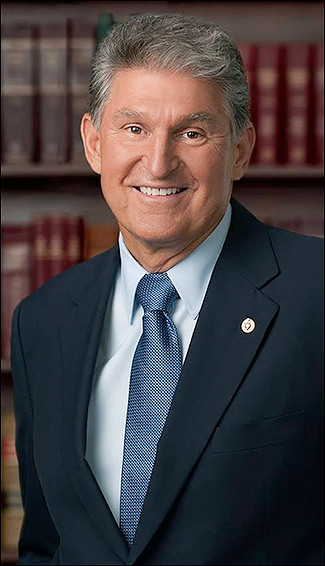By Jim Ellis
 June 21, 2021 — We have seen quite a few recent US Senate moves that help set the picture for a very competitive 2022 election cycle that will almost certainly break the current 50-50 chamber tie. Below is a recap of the action:
June 21, 2021 — We have seen quite a few recent US Senate moves that help set the picture for a very competitive 2022 election cycle that will almost certainly break the current 50-50 chamber tie. Below is a recap of the action:
Alabama: Katie Britt (R), the former president and CEO of the Alabama Business Council joined the race and immediately secured the endorsement of her former boss, retiring Sen. Richard Shelby (R). Before joining the Business Council, Britt was the senator’s chief of staff. She joins Rep. Mo Brooks (R-Huntsville) and former US Ambassador Lynda Blanchard in the GOP field. No Democrat has yet announced.
Arizona: Two-term Attorney General Mark Brnovich (R) announced his candidacy in the past week, giving the GOP a candidate who has won statewide to face freshman Sen. Mark Kelly (D), who stands for a full six-year term in 2022 after winning the 2020 special election. Also in the Republican field are retired Air Force Major General Mick McGuire and solar energy company executive Jim Lamon. Venture capitalist Blake Masters and US Rep. Andy Biggs (R-Gilbert) remain as possible candidates.
Florida: US Rep. Val Demings (D-Orlando), the former police chief whose husband is mayor of Orange County and the former county Sheriff, formally announced her US Senate challenge to Sen. Marco Rubio (R). Former congressman Alan Grayson and Miami City Commissioner Ken Russell are also Democratic US Senate candidates, among others.
Georgia: Former University of Georgia football star and NFL player Herschel Walker (R) is re-locating back to his home state from Texas ostensibly to soon announce a challenge to freshman Sen. Raphael Warnock (D) who, like Sen. Kelly in Arizona, must stand for a full six-year term in 2022 after winning a 2020 special election. Also in the GOP nomination race are state Agriculture Commissioner Gary Black, construction company owner Kelvin King, and financial executive and former Trump White House staff member Latham Saddler.
Iowa: Sen. Chuck Grassley (R), who will be 89 at the next election, appears poised to seek an eighth term. At this point, state Sen. Jim Carlin (R-Sioux City) is an announced Republican primary challenger, and ex-Crawford County Supervisor Dave Muhlbauer (D) is the lone Democratic announced candidate. Former one-term US Rep. Abby Finkenauer is a potential candidate along with current US Rep. Cindy Axne (D-Des Moines), and Waterloo Mayor Quentin Hart.
Missouri: Six-term US Rep. Vicky Hartzler (R-Harrisonville/Columbia) is the latest Republican to join the open field with Sen. Roy Blunt (R) retiring. She will oppose former governor, Eric Greitens, Attorney General Eric Schmitt, and St. Louis attorney Mark McCloskey, with US Reps. Ann Wagner (R-Ballwin), Billy Long (R-Springfield), and Jason Smith (R-Salem) remaining as possible candidates.
Former St. Louis area state Sen. Scott Sifton is the lone prominent announced Democrat. Ex-governor, Jay Nixon, and Kansas City Mayor Quentin Lucas are potential Democratic candidates.
Nevada: The Republican leadership believes that former Attorney General and 2018 gubernatorial nominee Adam Laxalt, grandson of the late former Sen. Paul Laxalt (R), will soon announce his Senate candidacy to oppose first-term Sen. Catherine Cortez Masto (D).







